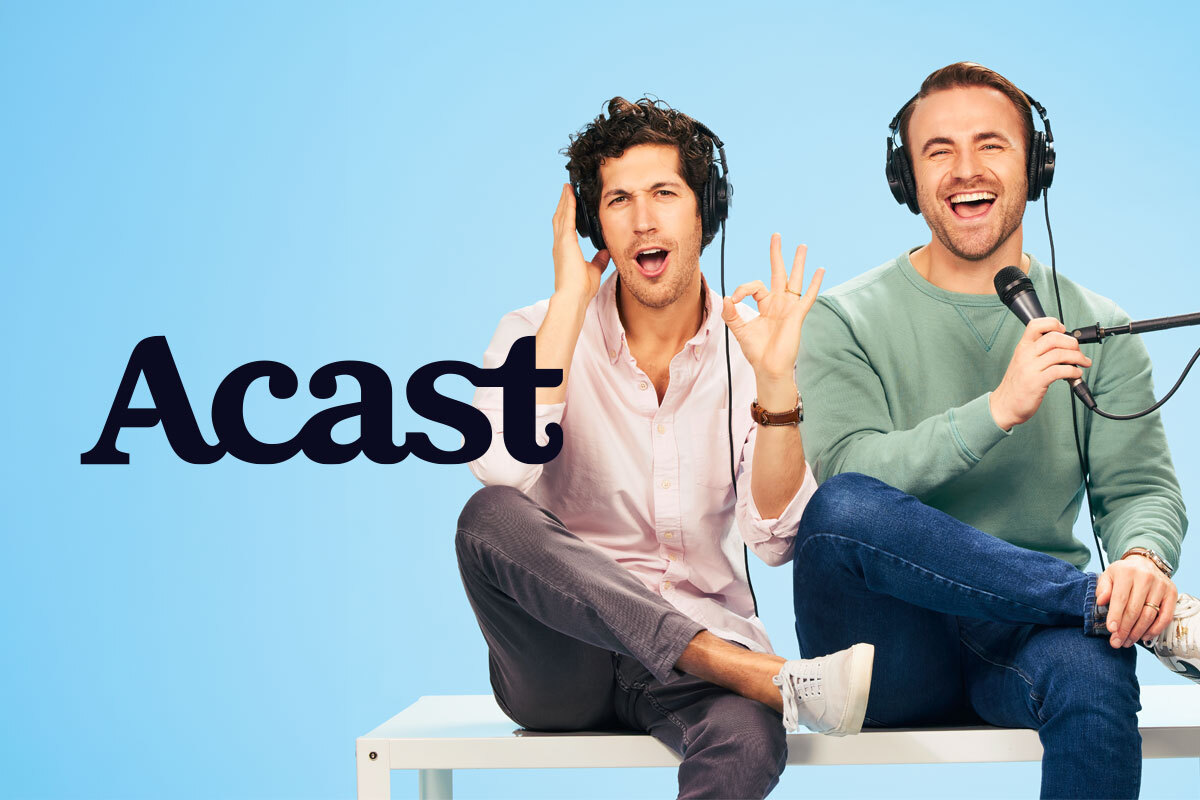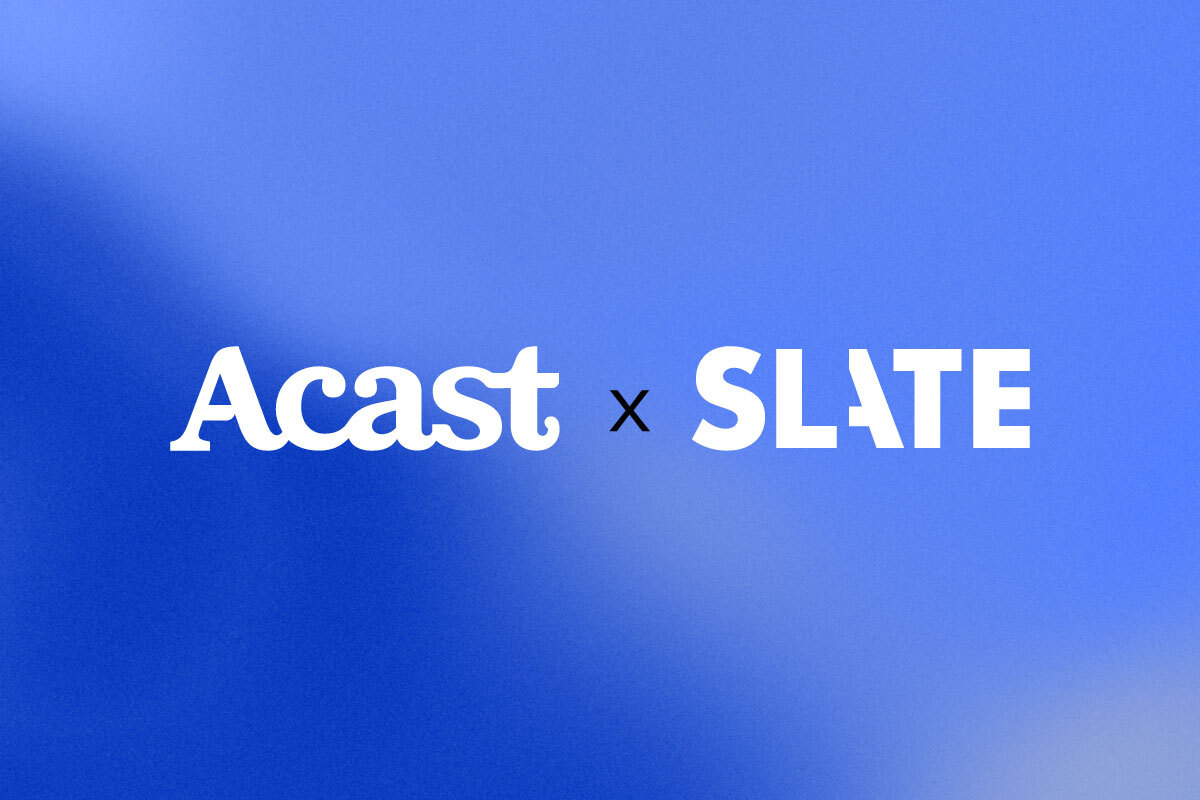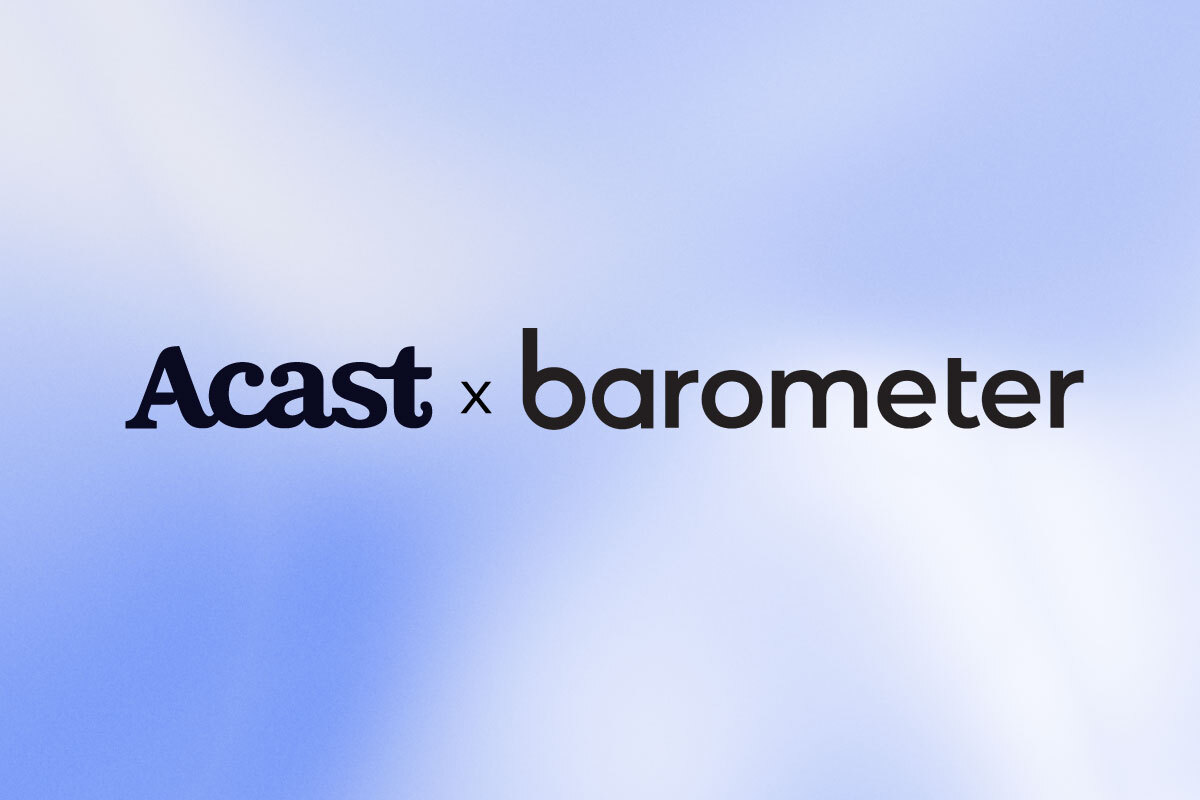Why podcast advertising remains unshakeable

Podcasting is a beautiful, resilient beast.
We saw that through Covid, and we’re seeing it now as recession looms and the outside world gets a little…tough. We know that creation of and listening to podcasts show no signs of slowing. At Acast, we had a record quarter in April to June of new podcasts joining us (three times the previous quarter) — and listens to our now-66,000 shows grew 41% compared to the same period in 2021.
Smart advertisers that we talk to every day aren’t putting the brakes on their podcasting spend — far from it. As brands adapt to new realities for consumers, we’ve seen a marked rise in podcast advertising spend from certain industries, most notably therapy and self-improvement, and fintech.
Here’s why:
Podcasting is free
As consumers look at cost-saving measures, monthly bills come under scrutiny. Beautifully — and thanks to the open podcasting ecosystem which we at Acast champion — podcasting remains at its core a free pastime for listeners, and it’s growing: at Acast we saw listens grow 41% year on year in Q2 2022 vs 2021. And where listeners do opt for subscriptions in podcasting, they are far more affordable than the majority of other entertainment forms.
Cutting ad spend doesn't pay off
Contrary to popular assumption, research demonstrates that cutting marketing spend in a recession is a false economy. Data suggests that brands that reduce all marketing spend in year one of a recession can take up to five years to catch up with those that maintain spend. Plus, investing in your brand to serve the adapting needs of your customers pays. Podcasting is one of the most effective ways to do that, because…
Podcast advertising gives bang for buck
A study that we recently completed with OMD’s analytics department Annalect and Spotify showed that advertising in digital audio gives 60% higher return on investment compared to advertising in other media channels.The return on ad spend for digital audio is 4.0, which means that ad buyers get an average of four times the money back on every dollar invested. When marketers are watching every penny, every decision counts.
Podcast advertising is highly effective
“Sure, you would say that — you’re a podcast advertising platform.” Putting aside bias, it’s proven. Research we conducted into the attention economy, alongside our partners at Differentology, showed that a massive 64% of people pay full attention to podcasts — compared to 49% of music streamers and 44% of radio listeners. This in turn means that 62% of respondents saying they’ve taken direct action following an advertisement they heard in a podcast. We’re continually rolling out even more effective targeting options for podcasts advertisers — including the ability to target podcast conversations at as granular a level as individual episodes, all of which sharpens podcasting’s ability to…just work.
Podcasting is reaching more and broader groups of people than ever
Listener research we carried out in partnership with Nielsen found that 52% of US adults increased the amount of time they spent listening to podcasts in the latter half of last year, with 45% saying they only started listening in the previous year. I challenge any other medium to expand its user base as quickly as podcasting right now.
Podcasting offers stability
Podcast listeners are creatures of habit. According to the Infinite Dial 2022, the 26% of Americans who listened to podcasts in the last week listened to an average of 8 podcasts throughout the week. In 2019, a report revealed that 22% percent of podcast fans listen to over 22 hours of podcasts a week. So we tell our podcasters to pick a day of the week to release and stick to it, as listeners build that release into their daily and weekly routines. These kinds of rituals which offer comfort and stability are proven to win out in turbulent times, as people look to familiarity and comfort.
Podcasting is a beautiful, resilient beast.
We saw that through Covid, and we’re seeing it now as recession looms and the outside world gets a little…tough. We know that creation of and listening to podcasts show no signs of slowing. At Acast, we had a record quarter in April to June of new podcasts joining us (three times the previous quarter) — and listens to our now-66,000 shows grew 41% compared to the same period in 2021.
Smart advertisers that we talk to every day aren’t putting the brakes on their podcasting spend — far from it. As brands adapt to new realities for consumers, we’ve seen a marked rise in podcast advertising spend from certain industries, most notably therapy and self-improvement, and fintech.
Here’s why:
Podcasting is free
As consumers look at cost-saving measures, monthly bills come under scrutiny. Beautifully — and thanks to the open podcasting ecosystem which we at Acast champion — podcasting remains at its core a free pastime for listeners, and it’s growing: at Acast we saw listens grow 41% year on year in Q2 2022 vs 2021. And where listeners do opt for subscriptions in podcasting, they are far more affordable than the majority of other entertainment forms.
Cutting ad spend doesn't pay off
Contrary to popular assumption, research demonstrates that cutting marketing spend in a recession is a false economy. Data suggests that brands that reduce all marketing spend in year one of a recession can take up to five years to catch up with those that maintain spend. Plus, investing in your brand to serve the adapting needs of your customers pays. Podcasting is one of the most effective ways to do that, because…
Podcast advertising gives bang for buck
A study that we recently completed with OMD’s analytics department Annalect and Spotify showed that advertising in digital audio gives 60% higher return on investment compared to advertising in other media channels.The return on ad spend for digital audio is 4.0, which means that ad buyers get an average of four times the money back on every dollar invested. When marketers are watching every penny, every decision counts.
Podcast advertising is highly effective
“Sure, you would say that — you’re a podcast advertising platform.” Putting aside bias, it’s proven. Research we conducted into the attention economy, alongside our partners at Differentology, showed that a massive 64% of people pay full attention to podcasts — compared to 49% of music streamers and 44% of radio listeners. This in turn means that 62% of respondents saying they’ve taken direct action following an advertisement they heard in a podcast. We’re continually rolling out even more effective targeting options for podcasts advertisers — including the ability to target podcast conversations at as granular a level as individual episodes, all of which sharpens podcasting’s ability to…just work.
Podcasting is reaching more and broader groups of people than ever
Listener research we carried out in partnership with Nielsen found that 52% of US adults increased the amount of time they spent listening to podcasts in the latter half of last year, with 45% saying they only started listening in the previous year. I challenge any other medium to expand its user base as quickly as podcasting right now.
Podcasting offers stability
Podcast listeners are creatures of habit. According to the Infinite Dial 2022, the 26% of Americans who listened to podcasts in the last week listened to an average of 8 podcasts throughout the week. In 2019, a report revealed that 22% percent of podcast fans listen to over 22 hours of podcasts a week. So we tell our podcasters to pick a day of the week to release and stick to it, as listeners build that release into their daily and weekly routines. These kinds of rituals which offer comfort and stability are proven to win out in turbulent times, as people look to familiarity and comfort.





